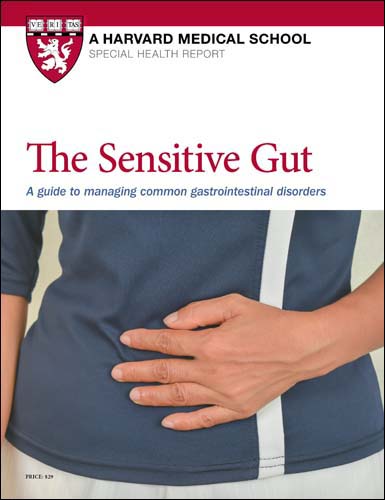Healthy gut, healthier aging
Support beneficial microbes in the gastrointestinal tract with these healthy lifestyle habits.

Trillions of microbes — bacteria, viruses, fungi — call your gut home. They do more than just help you digest food. They fight harmful pathogens; make vitamin K and other important chemicals; affect the way medications work; and may influence your immune system, heart health, and cancer risk. It also appears gut microbes may play a role in healthy aging and longevity. The genes of all your gut microbes are collectively called the gut microbiome.
Encouraging findings
In a study published online Feb. 18, 2021, by Nature Metabolism, scientists observed that older adults whose mix of gut microbes changed the most over time lived longer than those people with less change in their gut microbiome.
The study didn't prove that an eclectic microbiome directly caused people to live longer. However, such a microbiome was also associated with lower cholesterol levels, faster walking speeds, and higher levels of beneficial blood chemicals — all factors that lengthen the life span.
How do you make your gut microbiome more diverse and achieve health benefits? It mainly comes down to lifestyle factors. Indeed, one of the reasons that a healthy lifestyle may protect your health is through the impact of your lifestyle on your microbiome.
Eat a healthy diet
Eating the right foods is one of the best ways. Your gut microbes like to eat, too, and their favorite foods are the ones that are healthiest for us: fruits, vegetables (especially dark, leafy greens), legumes (beans, peas), and whole grains (quinoa, whole wheat, brown rice). "Those foods contain fiber. Our bodies don't break down fiber for food; fiber passes through to the gut and microbes feed on it. It gives them a good environment to grow," explains April Pawluk, strategic program manager at the Harvard Chan Microbiome in Public Health Center.
But when you eat an unhealthy diet with lots of processed, fatty, sugary foods, it makes it harder for helpful microbes to survive. "In the absence of diversity-promoting nutrients like fiber in our diets, the genes of our gut microbiome can produce chemicals that could increase our risk for developing different diseases," Pawluk says.
Exercise
Exercising appears to promote gut microbiome diversity, but the way it works is a matter of speculation, Pawluk says. Several ways are plausible. "It could be that exercise changes the rate at which material moves through the intestines. Or perhaps exercise reduces inflammation in the gut. Or exercise might alter our appetite, and alter the way that our bodies process the food we eat. All of these could affect the microbiome environment," Pawluk says.
Get a dog
Dogs are always tracking things in from outside — like dirt, grass, and insects — exposing their human families to more microbes. That might help counteract the effect of a modern world on the microbiome.
"Over the past century, there's been a decrease in the diversity of the human microbiome, possibly because of sanitation and modern medicine," Pawluk says. "Studies looking at young children growing up in a house with a pet show their microbiome becomes more diverse and they have less risk of allergies. We don't know if this helps older adults, but it wouldn't hurt."
Don't smoke
Cigarettes contain lots of chemicals and toxins that are harmful to the whole body, including your gut and its residents. "Smoking can kill some microbes and decrease microbe diversity. Smoking also puts physical stress on the body, including microbes. And when microbes are under stress, they change their function; they sense that they're in a bad situation and in some cases attack each other — or us. That can cause imbalance in the gut microbiome," Pawluk says.
Consider probiotics
One last suggestion that may affect the gut microbiome is to ingest colonies of "good" bacteria known as probiotics, which come in pills or powders or occur naturally in fermented foods (such as yogurt, kefir, and sauerkraut). "The intention is to boost the amount of beneficial bacteria in the gut," Pawluk says. "If you've recently taken antibiotics, which kill both harmful and beneficial bacteria, probiotics may help re-establish a diverse microbiome. The thing is, if you already have a diverse gut microbiome, adding more of one species probably isn't going to promote any significant change."
But Pawluk says there's no evidence probiotics are harmful, especially when they come from food. And there are many reasons why you might want to eat healthy probiotic-rich foods like yogurt, which has lots of calcium, or try any of the lifestyle habits we've laid out here. They all benefit health in numerous ways.
Image: © wmaster890/Getty Images
About the Author

Heidi Godman, Executive Editor, Harvard Health Letter
Disclaimer:
As a service to our readers, Harvard Health Publishing provides access to our library of archived content. Please note the date of last review or update on all articles.
No content on this site, regardless of date, should ever be used as a substitute for direct medical advice from your doctor or other qualified clinician.
















